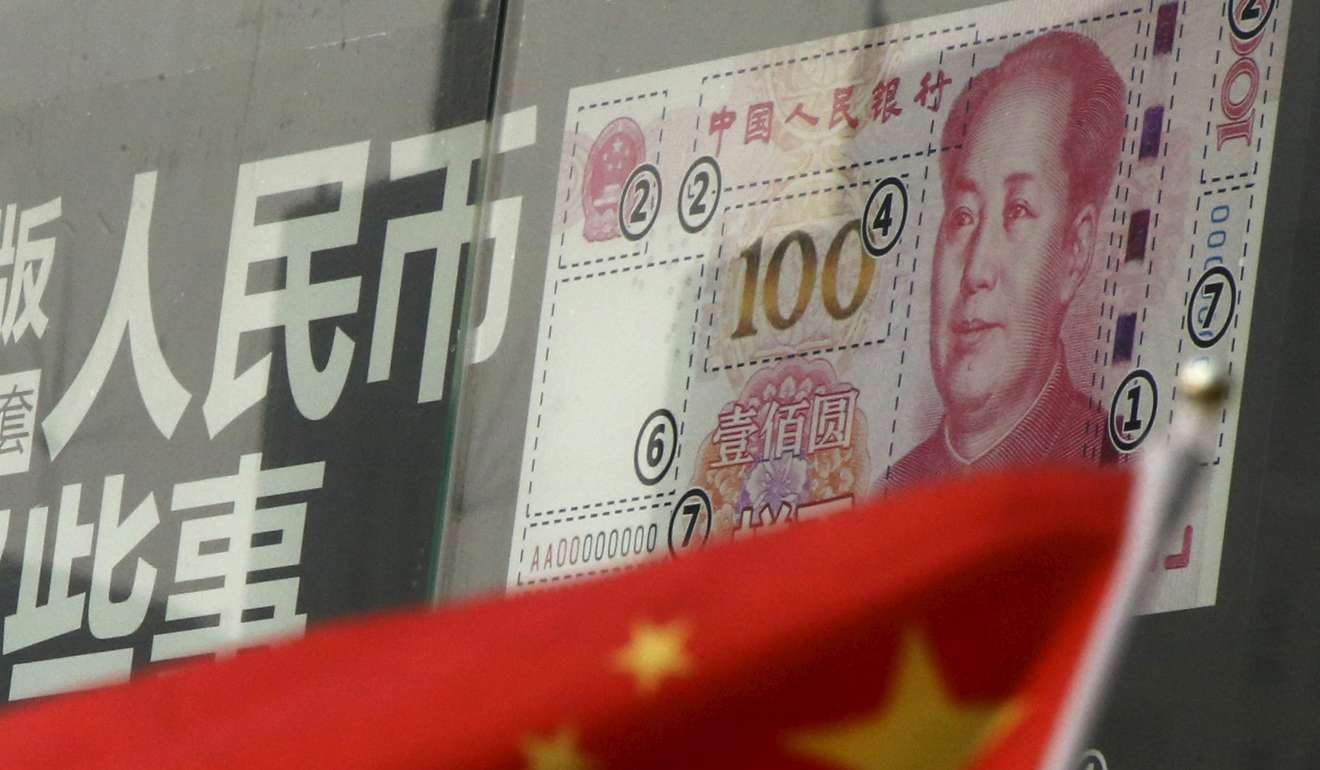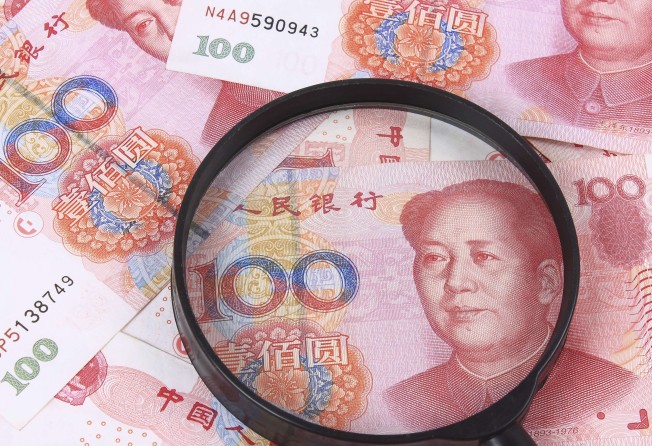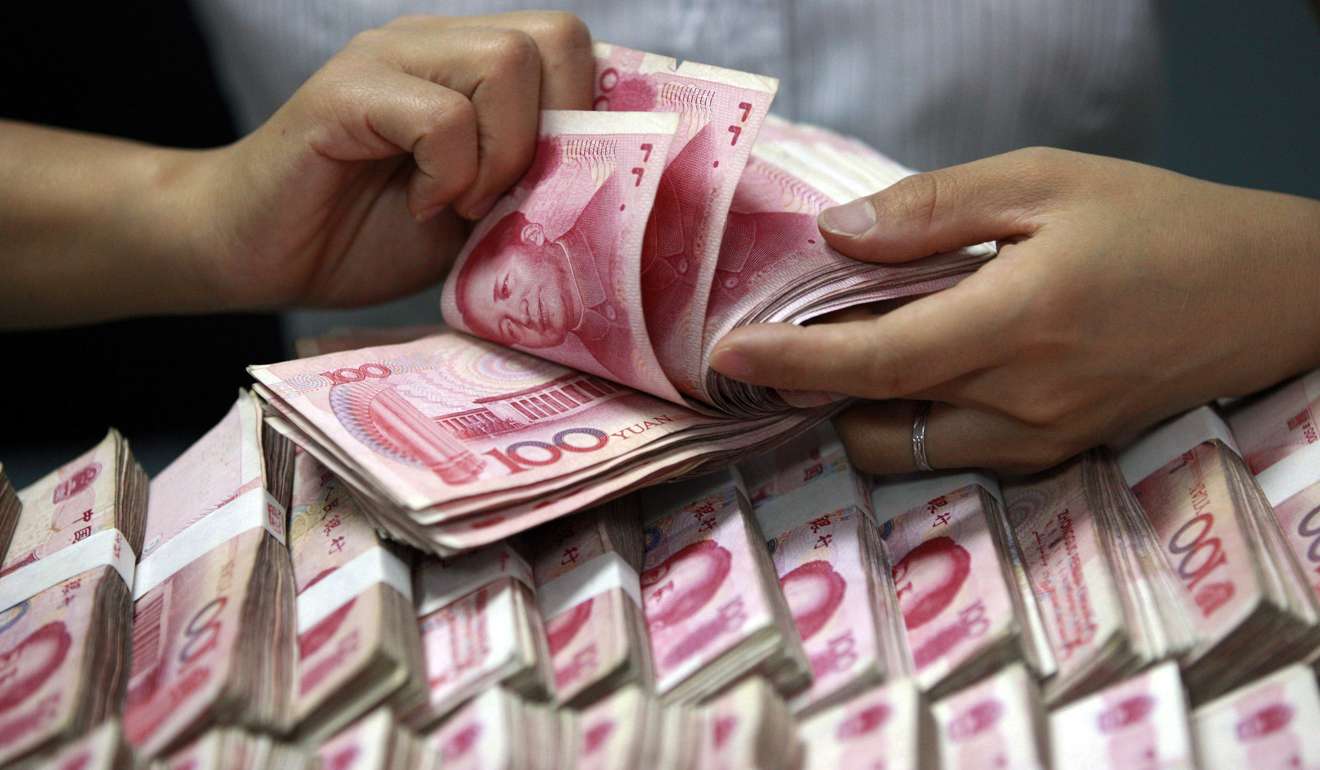
China regulator tackles banking loopholes head on
Cross-ownership financial products are barring funds from flowing into the real economy and obscuring underlying assets, CBRC document suggests

China’s banking regulator is to tackle rampant regulatory arbitrage by the nation’s banks, via various layers of investment products, according to an internal document, that could cut fund flow into the bond and equity market.
The document, released to banks in late March but still not made public, is aimed at cracking down on regulatory arbitrage, that is blocking fund from flowing into the real economy, or lengthening the chains between ultimate lenders and borrowers.
The document is the latest of a string of measures taken to contain financial risk and tame industry irregularities since Guo Shuqing took the helm of China Banking Regulatory Commission (CBRC )in February.

Regulatory arbitrage is the practice whereby firms capitalise on loopholes in regulatory systems to circumvent unfavourable regulations. Opportunities may be accomplished by a variety of tactics, including restructuring transactions, financial engineering or geographic relocation.
It is considered difficult to prevent entirely, however, but can be limited by closing the most obvious loopholes and increasing the costs associated of circumventing the regulations.
According to the document – a copy of which was obtained by the Post – the CBRC is demanding that banks “take responsibility” of the investment products in which they invest.
If the products get into trouble, investors and relevant regulators will now be held accountable, it said.
Banks are being asked to submit a self-examination of their proposals to the commission before June 12, and report how they have rectified any misdeeds by November 30, according to three independent sources.
Whoever invested in cross-ownership financial products should take the responsibility [for them]. Relevant regulators should also be held accountable
The CBRC did not reply to a faxed request for comment on the document, but in a Friday press conference last week, senior official Yang Jiacai confirmed it was conducting an anti-arbitrage campaign and will release several documents in the near future, calling this year one of “strong regulation and accountability”.
“Whoever invested in cross-ownership financial products should take the responsibility [for them]. Relevant regulators should also be held accountable,” according to the document.
“Banks investing their own cash in products cannot pass on their risk management to various vehicles.”
Until now, banks have been able to raise massive amounts through off-balance-sheet wealth management products (WMPs) – more than 26 trillion yuan by the end of 2016 – and reinvest that in various asset management products, set up by themselves, other banks, and non-bank financial institutions such as securities and fund companies, which offer higher yields.
Around 40 per cent of the proceeds have flowing into the bond market, according to Moody’s estimate.
Li Qilin, chief macroeconomic analyst with Lianxun Securities, said two major tactics have been used to transfer illiquid loan assets into interbank assets: “special purpose vehicles” and “beneficial interest”, or the right to receive benefits on assets held by another party.
Illiquid loan assets require higher reserves and capital provision than interbank assets.

Some smaller banks have engaged in aggressive borrowing through “negotiable certificates of deposit” (NCD) and have used the proceeds to buy more WMPs, expanding their balance sheet in a short-time and further obscuring their underlying assets.
NCDs are not calculated as interbank liabilities, but under tightened rules the industry widely believe their inclusion is inevitable.
The document said CBRC will check whether banks are using WMPs, to buy other WMPs or NCDs issued by themselves, and whether non-bank institutions are using funds entrusted to them to add their leverage.
Li said uncertainty still lies in whether they are actually allowed to invest in such products indirectly.
“If the regulator is determined to trace the funds to their very origin, it will be a massively destructive weapon for the bond market,” Li said.
If the regulator is determined to trace the funds to their very origin, it will be a massively destructive weapon for the bond market
He added that if non-bank institutions are banned from using funds entrusted to them to add leverage, the business will literally lose its meaning, as become unviable.
“The tightening so far is possibly just the beginning,” said Zhou Guannan, an analyst with Huachuang Securities.
“Under such pressure, the banks will be forced to shorten their interbank investment chains, available assets will be squeezed, and the bond market will fall under pressure. Our own survey has found banks are already scaling down their trust business.”
Yang Yue, a banking analyst at China Zheshang Bank, added: “The clampdown will squeeze the space in the market for shadow banking, and is among a spate of tighter scrutiny introduced this year.
“Two regulatory themes are clearly reflected in the clampdown: guiding money back into real economic activities, and warding off against rising risks.”